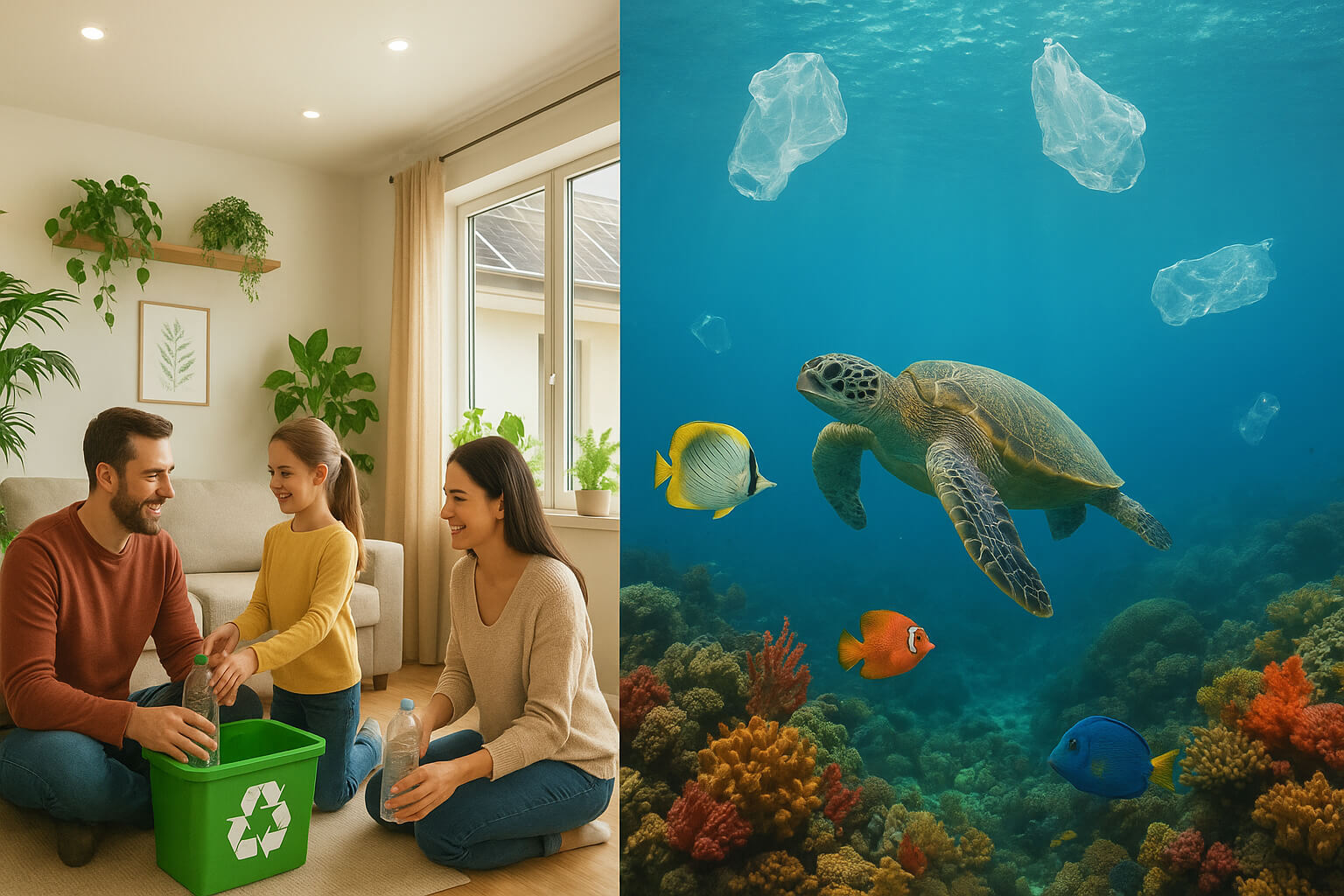Simple Ways to Reduce Your Carbon Footprint at Home; The Impact of Plastic Pollution on Our Oceans

Every small step we take at home can contribute to a healthier planet. From reducing energy consumption to cutting down on single-use plastics, our choices shape the future of our environment. By making conscious lifestyle changes, we can lower our carbon footprint and help protect our oceans from devastating pollution.
In this article, we’ll explore practical ways to reduce your carbon footprint at home and understand the impact of plastic pollution on our oceans.
Simple Ways to Reduce Your Carbon Footprint at Home
Reducing your carbon footprint doesn’t require massive changes overnight. With a few smart choices, you can make a significant impact. Here are some easy, sustainable actions you can implement at home:
1. Switch to Energy-Efficient Appliances
2. Use Renewable Energy Sources
- If possible, install solar panels or switch to a green energy provider. Even small steps like using rechargeable batteries instead of disposable ones help reduce waste and your energy reliance.
- Explore the role of clean energy in Understanding Carbon Offsetting: Is It Effective?.
3. Conserve Water
4. Embrace Sustainable Food Choices
- Eat more plant-based meals, which have a lower environmental impact.
- Reduce food waste by meal planning and using leftovers creatively.
- Buy local and seasonal produce to support local farmers.
Want to dive deeper? Read Simple Ways to Reduce Your Carbon Footprint at Home: The Problem with Food Waste.
5. Reduce, Reuse, Recycle
- Reuse shopping bags, containers, and packaging materials whenever possible.
- Compost kitchen waste to reduce landfill contributions.
- Donate or repurpose old items instead of throwing them away.
Learn more in The Importance of Composting: Reducing Landfill Waste.
6. Transportation Matters
- Walk, cycle, or use public transport whenever possible to reduce reliance on cars. Consider carpooling or switching to an electric vehicle to cut down on emissions.
- Check out Simple Ways to Reduce Your Carbon Footprint at Home.
- Key takeaway: Small, consistent actions at home can create a ripple effect for global change, helping to slow climate change and reduce our ecological footprint.
The Impact of Plastic Pollution on Our Oceans
Plastic pollution is one of the most urgent environmental crises of our time. Millions of tons of plastic enter the oceans every year, causing severe harm to marine life, ecosystems, and even human health.
1. Harm to Marine Life
2. Microplastics Enter the Food Chain
3. Coral Reef Damage
4. Economic Impact
5. What Can We Do?
- Say no to single-use plastics.
- Support clean-up drives.
- Choose sustainable packaging.
- Volunteer with local groups.
Get inspired by Simple Ways to Reduce Your Carbon Footprint at Home & The Impact of Plastic Pollution on Our Oceans.
How You Can Take Local Action
Individual actions can spark broader change:
- Join or organize a beach clean-up drive.
- Volunteer with environmental organizations.
- Educate your community about reducing waste.
- Advocate for renewable energy policies and plastic bans.
Learn more in The Power of Community in Health Recovery—because communities drive real transformation.
Conclusion
- Reducing your carbon footprint at home and addressing plastic pollution are deeply interconnected. By cutting energy use, minimizing waste, and reducing plastic consumption, you’re actively fighting climate change and protecting our oceans.
- Together, through consistent actions, volunteer efforts, and policy advocacy, we can create a cleaner, greener planet for future generations.
